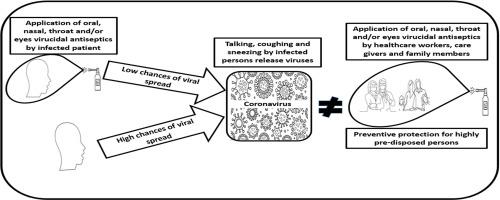Antiseptics: An expeditious third force in the prevention and management of coronavirus diseases
IF 4.8
Q1 MICROBIOLOGY
引用次数: 0
Abstract
Notably, severe acute respiratory syndrome (SARS), Middle East respiratory syndrome (MERS) and coronavirus disease 2019 (COVID-19) have all had significant negative impact on global health and economy. COVID-19 alone, has resulted to millions of deaths with new cases and mortality still being reported in its various waves. The development and use of vaccines have not stopped the transmission of SARS coronavirus 2 (SARS-CoV-2), the etiological agent of COVID-19, even among vaccinated individuals. The use of vaccines and curative drugs should be supplemented with adoption of simple hygiene preventive measures in the fight against the spread of the virus, especially for healthcare workers. Several virucidal topical antiseptics, such as povidone-iodine (PVP-I), citrox, cyclodextrins among others, have been demonstrated to be efficacious in the inactivation of SARS-CoV-2 and other coronaviruses in both in vitro and in vivo studies. The strategic application of these virucidal formulations could provide the additional impetus needed to effectively control the spread of the virus. We have here presented a simple dimension towards curtailing the dissemination of COVID-19, and other coronaviruses, through the application of effective oral, nasal and eye antiseptics among patients and medical personnel. We have further discussed the mechanism of action of some of these commonly available virucidal solutions while also highlighting some essential controversies in their use.

防腐剂:预防和管理冠状病毒疾病的第三支快速力量
值得注意的是,严重急性呼吸系统综合症(SARS)、中东呼吸系统综合症(MERS)和 2019 年冠状病毒病(COVID-19)都对全球健康和经济产生了重大负面影响。仅 COVID-19 就已导致数百万人死亡,在不同的波次中仍有新病例和死亡报告。疫苗的开发和使用并没有阻止 COVID-19 的病原体 SARS 冠状病毒 2(SARS-CoV-2)的传播,即使在接种过疫苗的人中也是如此。在使用疫苗和治疗药物的同时,还应采取简单的卫生预防措施来防止病毒的传播,尤其是对医护人员而言。在体外和体内研究中,已证实聚维酮碘 (PVP-I)、枸橼酸、环糊精等几种局部杀菌剂能有效灭活 SARS-CoV-2 和其他冠状病毒。战略性地应用这些杀病毒制剂可以为有效控制病毒传播提供额外的动力。我们在此介绍了一个简单的方法,即通过在患者和医务人员中使用有效的口腔、鼻腔和眼部杀菌剂来遏制 COVID-19 和其他冠状病毒的传播。我们进一步讨论了其中一些常见杀病毒剂的作用机制,同时也强调了在使用过程中存在的一些基本争议。
本文章由计算机程序翻译,如有差异,请以英文原文为准。
求助全文
约1分钟内获得全文
求助全文
来源期刊

Current Research in Microbial Sciences
Immunology and Microbiology-Immunology and Microbiology (miscellaneous)
CiteScore
7.90
自引率
0.00%
发文量
81
审稿时长
66 days
 求助内容:
求助内容: 应助结果提醒方式:
应助结果提醒方式:


